Miami New Drama’s ‘ELIÁN’ Ready to Revisit Flashpoint in Cuban Exile History
Written By Christine Dolen for ARTBURST MIAMI
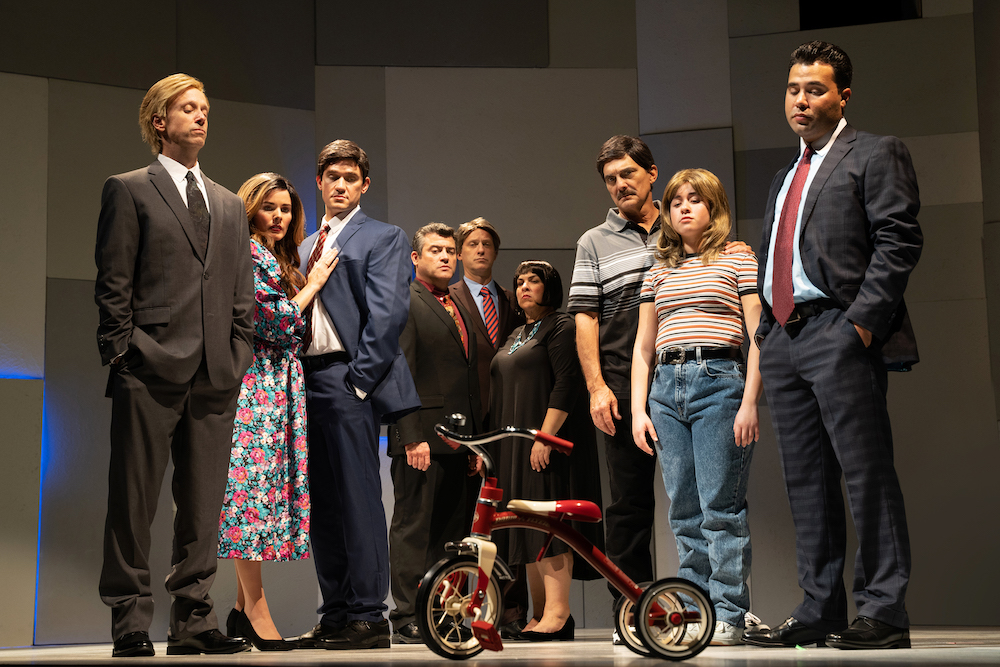

When two cousins who were out fishing found a boy bobbing in an inner tube three miles off the Fort Lauderdale coastline, he was so small the men thought they were looking at a doll, someone’s idea of a cruel joke.
They were wrong.
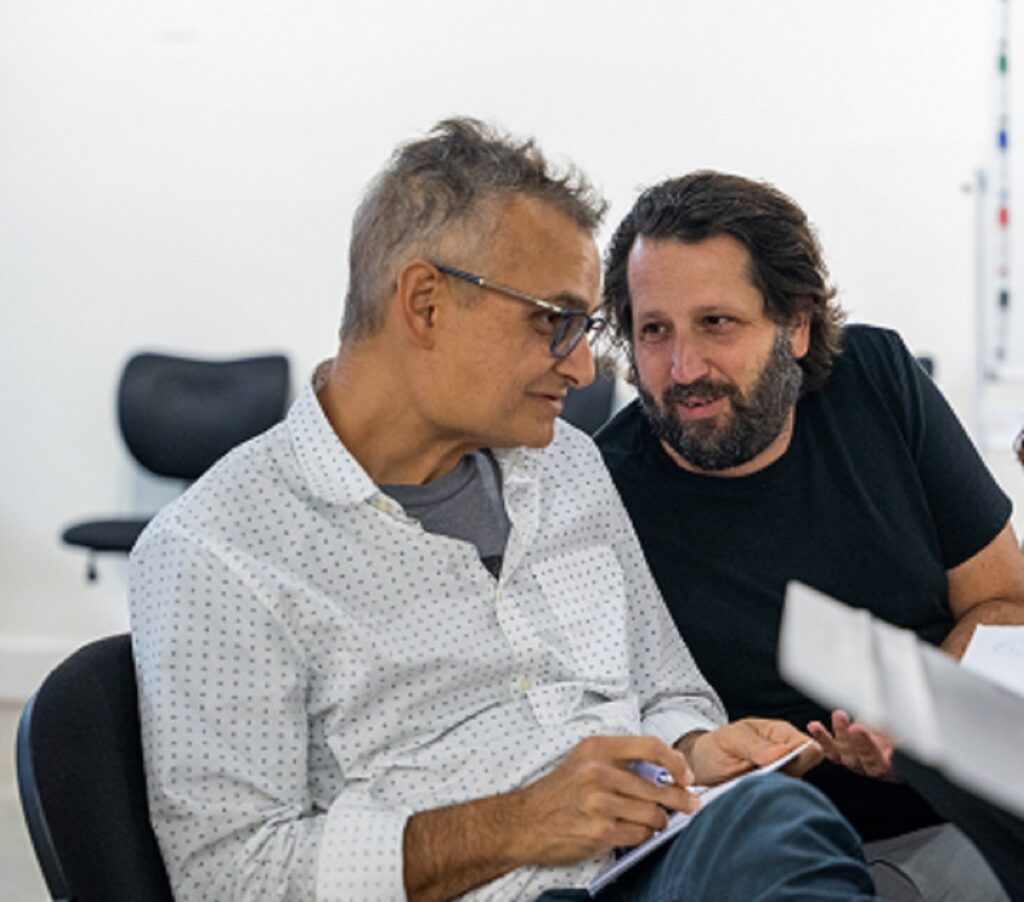
Elián González was rescued that day – Nov. 25, 1999 – after a frightening journey in a small boat that left Cuba from Cárdenas, its passengers bound for Miami and hoping for a better life. Only five-year-old Elián and two others made it to Florida. The other 11, including the boy’s mother Elizabeth Brotons Rodríguez, drowned after the boat capsized.
If you lived in Miami then, if you followed what happened after Elián’s rescue, you know that the boy who had just lost his mother became a high-stakes symbol – or a pawn – in an escalating tug-of-war.
On one side: Fidel Castro, Elián’s father Juan Miguel González, advocates for fathers’ rights and, ultimately, the United States Justice Department, all declaring Elián should be returned to his father in Cuba.
On the other: The boy’s relatives who took him into their Little Havana home, outraged members of the Miami Cuban exile community and countless politicians, who demanded Elián be allowed to stay and grow up in freedom.
You know that story, right? Perhaps. But 23 years after the painful battle played out, Miami New Drama is preparing to provide fresh insight into a saga that continues to sting.
The world premiere of “Elián” by Cuban-American playwright Rogelio Martinez – a surprising, tragic, farcical, moving version of the story – will preview Thursday and Friday, Oct. 27 and 28 and open on Saturday, Oct. 29 for a run through Nov. 20 in the company’s home at the Colony Theatre on Miami Beach’s Lincoln Road.
“At the end of the day, it’s a human story. Everybody knows what happened to the boy. What they don’t know is the narrative,” says actor Andhy Mendez, who plays two very different characters in “Elián.”
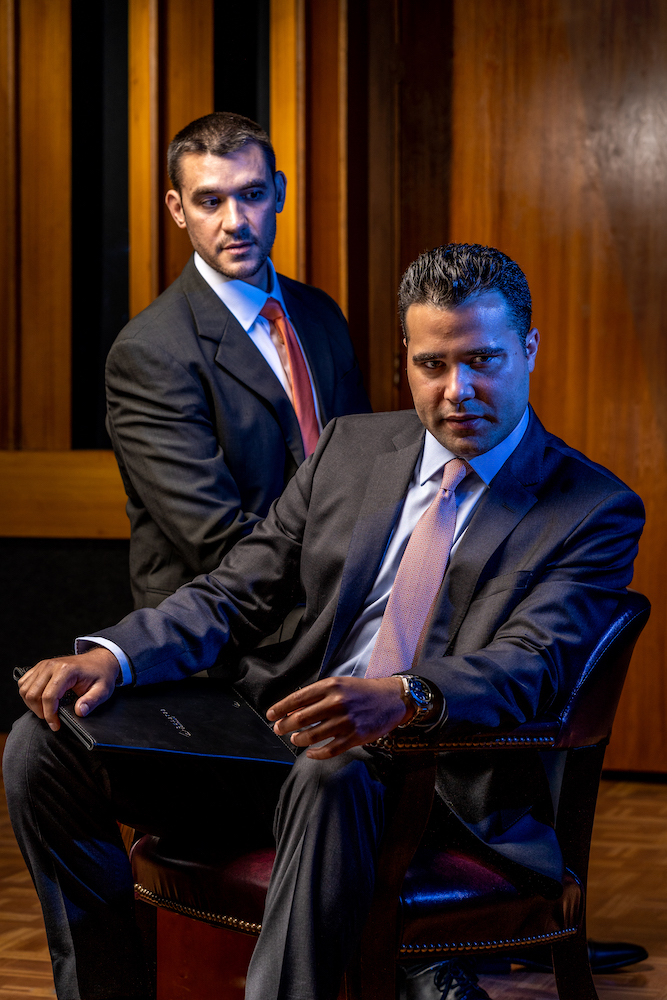
Michel Hausmann, Miami New Drama’s cofounder and artistic director, commissioned the play and is directing its premiere. He had a deep involvement in the developmental process, accompanying Martinez when the playwright made multiple research trips to Miami to interview key figures in a story that, judging from some social media comments on “Elián” promotional posts, can still provoke rage.
“This was a holy moment, a pivotal moment for our community. The play has to be smart and sophisticated enough to be part of the conversation,” says Hausmann, who points out that “Elián” is a dramatic work, not a journalistic one, but that the script is grounded in fact. “I think it’s the most important play we’ve ever presented.”
Martinez, who left Cuba with his mother as a nine-year-old on the Mariel boatlift in 1980, grew up in New Jersey and still lives in the northeast. He is an award-winning playwright – a Guggenheim Fellowship, a Princess Grace Award and multiple other honors – whose work has been produced by major regional theaters all over the United States.
His gluttony-themed play “Itsy Bitsy Spider” (about ex-president Richard Nixon, dreaming of a comeback) was part of Miami New Drama’s acclaimed “Seven Deadly Sins” project. His Cold War Trilogy plays – “Ping Pong” (United States-Chinese relations during the Nixon era), “Born in East Berlin” (the impact of a 1988 Bruce Springsteen concert on East Germans before the fall of the Berlin Wall) and “Blind Date” (Ronald Reagan’s 1985 summit meeting with Mikhail Gorbachev in Geneva) – demonstrate his highly theatrical treatment of history, politics and policy.
Hausmann, who comes from Venezuela, says that collaborating with Martinez, who brought a different perspective to the storytelling as both a Miami outsider and a Cuban-American, has been deeply rewarding.
“[The resolution of] Rogelio’s story is the opposite of Elián’s. He’s a Marielito. He came to the United States with his mother on a boat and never saw his father again,” Hausmann says.
The “Elián” collaboration works, Martinez believes, because of what he, Hausmann and Miami New Drama bring to the table.
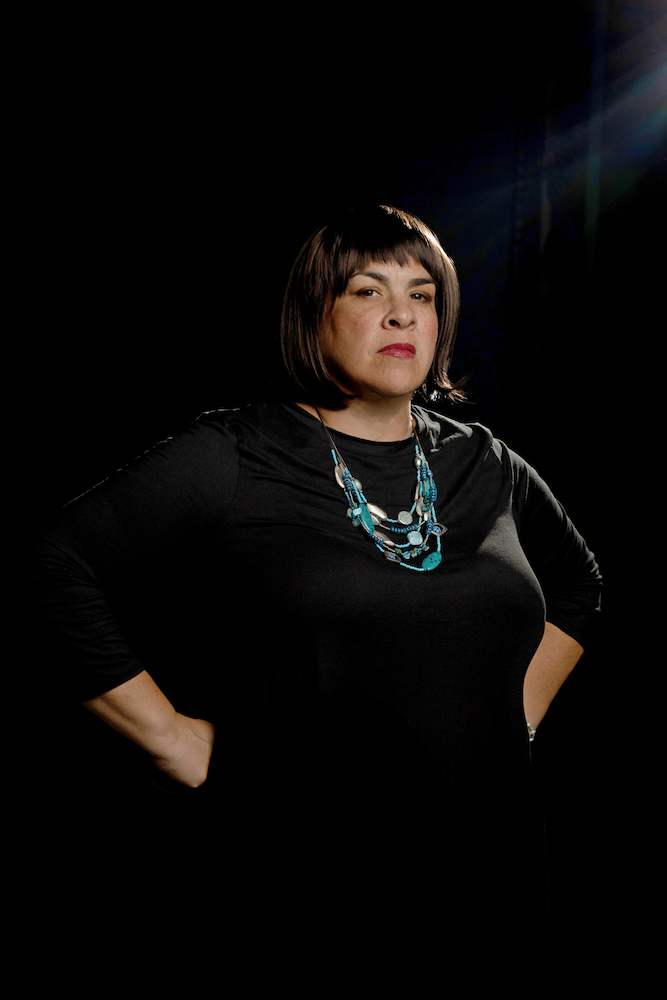
“Michel is great at storytelling. I am strong with character. We complement each other, and we both love the theatrical,” Martinez says. “I think I had enough distance to tell a story that can be both gripping and entertaining,” the playwright says of his perspective. “Maybe I would have been less inclined to make those bold choices in comedy. But I am an exile. I have strong opinions.”
In rehearsals, Martinez has whittled his original 140-page script to about 100 pages, eliminating some characters, moving other things around. Figuring out the ideal form for a new play is, he says, “like a little puzzle.”
Arguably the playwright’s most surprising choice is his decision to make controversial lobbyist and political operative Roger Stone – yes that Roger Stone – not only a character but the metatheatrical play’s self-anointed narrator. There is an actual connection between Stone and the Elián story, but Martinez had several reasons for incorporating the controversial Stone.
“I thought, ‘How do I tell this story in a way that will be surprising?’” he says. “Roger had been fired from the Bob Dole campaign. He was in a form of exile from Washington… He needed this to play out in a certain way so he would once again be at the center of the political universe.”
9 Actors, 20 Characters
Nine actors play more than 20 characters in “Elián,” with the majority of a powerhouse cast coming from South Florida. Most are walking a performative tightrope, portraying the real people who lived the Elián story (some of whom are expected to be in the opening night audience) while conveying the playwright’s version of them.
Many play multiple, sometimes diametrically opposed characters.
Actor-playwright Carmen Pelaez, for instance, portrays outspoken Radio Mambi talk host Ninoska Pérez Castellón as well as U.S. Attorney General (and Miami native) Janet Reno.
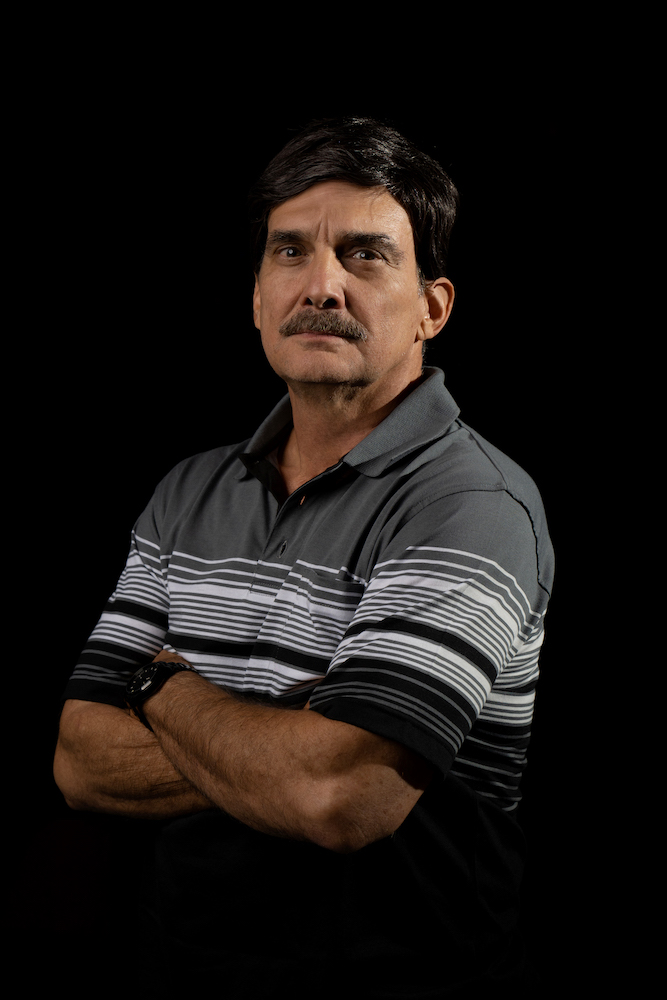
Jonathan Nichols-Navarro plays Elián’s great uncle Lázaro, whose home was a refuge for the boy as well as the target of protests covered by a massive media circus; Lázaro’s older brother Delfin; Cuban American National Foundation (CANF) founder Jorge Mas Canosa; and Ricardo Alarcón, the powerful president of the Cuban National Assembly.
Mendez portrays the González family attorney Manny Diaz, who would go on to become a two-term Miami mayor and now heads the Florida Democratic Party, Mendez also operates and voices a Fidel Castro puppet.
Mike Iveson, who made his Broadway debut in Heidi Schreck’s “What the Constitution Means to Me” (a play being produced by City Theatre at Miami’s Arsht Center in early December), gets two juicy roles as Roger Stone and President Bill Clinton. Daniel Capote plays Jorge Mas Santos, the billionaire businessman and successor to his father as the head of CANF.
Caleb Scott plays Vice President Al Gore and Donato Dalrymple, one of the cousins who rescued Elián. The latter is the man who was holding a terrified Elián when armed federal agents conducted a predawn raid to remove the boy from Lázaro’s home, whisking him off to be reunited with his father at Andrews Air Force Base. It is also etched in memories from one of the most famous photos taken during the raid.
Also in the cast: René Granado in multiple roles including Elián’s father Juan Miguel, Cristina Ortega as Elián’s cousin Marisleysis, and Gaby Tortoledo in a variety of roles.
Real-Life Research
To become their characters, the actors are drawing on what Martinez put on the page, Hausmann’s vision and research including video footage, though a few have met someone they’re portraying.
Pelaez is enjoying the process of playing “two vastly different characters” and is outspoken about portraying Ninoska, whom she has met a number of times.
“I was dying to play her. I understand her vitriol. It’s delicious to play what she considers qualities and I consider defects,” says Pelaez, who put a Ninoska-like character into her Miami New Drama world premiere “The Cuban Vote,” which is up for eight Carbonell Awards at this year’s Nov. 7 ceremony.
The outspoken actor adds of Ninoska: “I have a hard time listening to her. We are both anti-Castro and both anti-Revolution, but she’s so grating. I want to say, ‘Just stop and be honest.’ I’m at the opposite end of the political spectrum from her – but at the same time, what she was saying would happen to Elián did happen.”
Which was, in brief, that he went back to Cuba after Castro threatened to unleash a second massive boatlift if Elián wasn’t returned. The dictator became like a second father to a boy who was educated and indoctrinated in Cuban communism, and in news footage, the adult Elián – now 28 and a father – extols the values of the revolution and in so many words deifies the late Cuban leader.
Mendez, who played Pelaez’s campaign manager and love interest in “The Cuban Vote,” portrayed Fidel Castro in the world premiere of Eduardo Machado’s “Celia and Fidel” at Washington D.C.’s Arena Stage in 2021. This time, Fidel is a puppet operated and voiced by Mendez.
“A puppet will always be funny. Castro had a level of manipulation that made him a genius – thinking before he spoke, using precise language and absurd metaphors. That translates into farce,” Mendez observes. “This is a caricature of him, using an exaggerated, high-pitched voice.”
Though Manny Diaz spoke at length to Martinez and Hausmann as they were researching the play, Mendez hasn’t met the former mayor. The actor has watched plenty of video featuring Diaz – though he says there is “little footage of him at that time” – and is hoping to emulate rather than imitate one of the players at the center of the Elián story.
Mendez also admits to another challenge in playing Diaz: “I have played real people before, but not ones who are alive and might see the play.”
Capote also began building his interpretation of Jorge Mas Santos by watching videos, absorbing impressions of his “mannerisms and quirks” and finding Mas Santos’s voice.
When the events in the play unfolded, Capote was a 15-year-old Miami high school student. He remembers that, shortly after the raid that returned Elián to his father, “I saw Marisleysis at a book sale. She looked distraught, very emotionally beat up.”
The play, he says, is “not what I was expecting. It tackles all kinds of points of view….It’s less about Elián the person and more about everything going on around him, showing how many people didn’t have his best interest at heart.”
Although Nichols-Navarro plays multiple roles, he sees the one as Elián’s great uncle Lázaro as vital to the play’s potential impact.
“As Lázaro, I am the touchstone of the family. I’ve fought for those family scenes, which show what happened inside the house,” says the Miami-raised actor, who is Carbonell nominated for his performance as a quintessential old-school Cuban-American mayoral candidate in “The Cubans.”
“If you looked outside at that time, you’d think the Beatles had shown up. But what happened inside that 1,000-square-foot house is more interesting. That’s what we don’t know…With facts, you can tell a story. With heart, you can move people.”
Approaching the Subject Matter
Iveson read Martinez’s script after Miami New Drama reached out to him about “Elián.” He was impressed with the playwright’s approach.
“I could see he was doing a super creative take on the story. You have to pick a lane because there are 30 different ways to think about it,” the actor says. “He has tried to incorporate a lot of different ways, and that’s what theater should do. It’s such a sprawling story.”
Working in a cast with a number of actors who are of Cuban descent or who arrived from Cuba as children, Iveson has become far more aware of the impact of the Elián González story.
“This is real Miami stuff, theater for people who it affects. I don’t know what does that better than theater,” he says. “I’m getting an up-close picture of how emotional this was for Cuban-Americans at the time. It remains a really big deal. Still, 23 years after Elián, it’s very alive.”
Today, as huge numbers of would-be Cuban exiles are making the same dangerous journey toward freedom that Elián and his mother did, Pelaez makes note of the transformative damage done by the highly publicized battle over a little boy.
“This shattered the perception of the Cuban exile community. The Cuban government used it brilliantly against us,” she says. “We went from being model exiles to ‘oh, those crazy Cubans.’ We became a monolith outside the 305. This took away our agency.”
Says Hausmann: “The narrative was that the Cubans went crazy. But this was similar to a Black Lives Matter moment for people dealing with significant, multi-generational trauma.”
WHAT: Miami New Drama’s “Elián” by Rogelio Martinez
WHERE: Colony Theatre, 1040 Lincoln Rd., Miami Beach.
WHEN: Previews Thursday, Oct. 27 and Friday, Oct. 28, opens Saturday, Oct. 29 (opening sold out); performances are 8 p.m. Thursday-Saturday, 3 p.m. Sunday, through Nov. 20
COST: $46.50-$76.50 (includes service fee)
INFORMATION: 305-674-1040 or miaminewdrama.org
ArtburstMiami.com is a nonprofit source of dance, visual arts, music and performing arts news. Sign up for our newsletter and never miss a story.
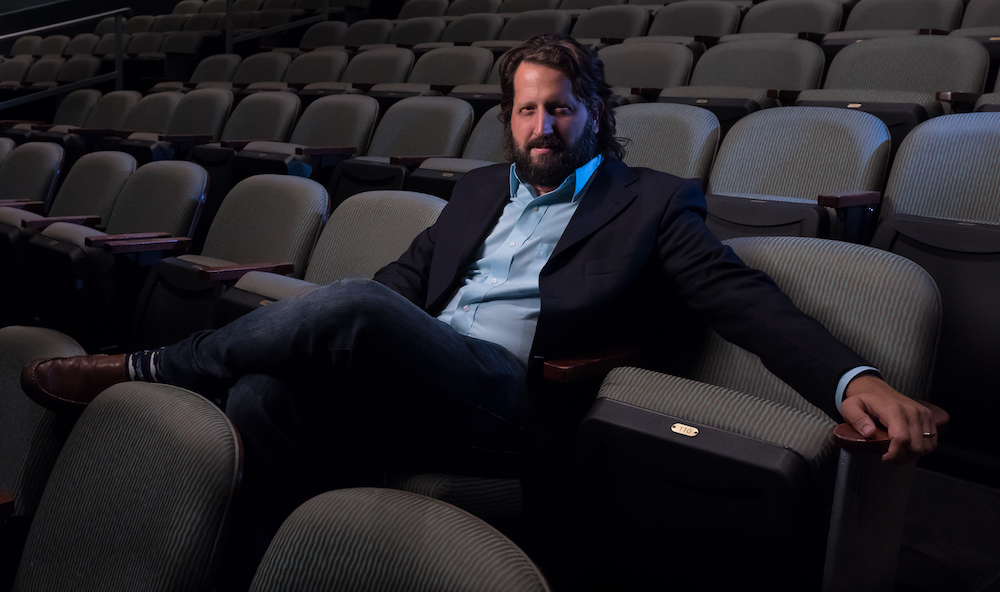

Artburst is a multimedia platfrom covering arts in Miami-Dade. Artburst works with some of the best art journalists in South Florida writing reviews, features and articles covering our vibrant cultural community. We partner with some of the top video producers to create multi-media content. Make Artburst your one stop source for dance, music, theater and independent film coverage. In addition we promote the arts and arts journalism through social media. The arts are a major force in Miami-Dade with an economic impact of 1.4 billion dollars. Over 16 million people attended an arts event, museum or performance last year. With over 1,000 arts organizations the opportunities for endless. Follow us @artburstmiami to get all the inside scoop and engage with our dynamic arts ecosystem.
Artburst is a program of the Arts & Business Council of Miami with the support of the Miami-Dade County Department of Cultural Affairs and the Cultural Affairs Council, the Miami-Dade County Mayor and Board of County Commissioners.


